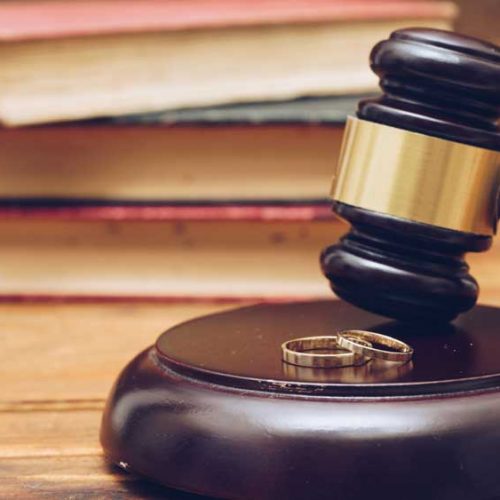What To Do When An Order Of Protection Is Filed Against You
“Because Your Future Deserves a Defense”
If you have recently found out that an order of protection has been filed against you, you probably have many questions about how to proceed. If a temporary order of protection from domestic violence has been filed against you, the petitioner is claiming that you have committed abuse against them. This is a serious charge that can have permanent consequences to your life; therefore, it is essential that you hire a domestic violence attorney to help you understand the charges. In this blog, we will go over some of the information you are probably looking for when an order of protection has been filed against you.
Order Of Protection Versus Restraining Order

In South Carolina, there are two types of restraining orders: orders of protection and restraining orders. An order of protection is essentially a restraining order that is specifically against a member of the same household or family member. According to the state of South Carolina, you can file an order of protection against a spouse, former spouse, someone with whom you share a child, a partner you live with, or a partner with whom you used to live. In contrast, a restraining order is filed against someone who does not live in and never has lived in the same household; for example, in cases of stalking or harassment. An order of protection is specifically used for cases of alleged domestic violence and abuse, which is defined as physical harm, bodily harm, threat of assault, and sexual offenses.
What Is An Order Of Protection?
An order of protection may be temporary or final. A temporary order of protection must be filed before a final order of protection. A temporary order of protection generally lasts for roughly two weeks before a court date during which the court will determine whether or not a final order of protection should be put in place. The exact provisions of the order of protection will vary, but could include:
- No Contact Provision: One cannot contact the petitioner in any way.
- Peaceful Contract Provision: One can contact the petitioner peacefully for specific reasons, such as to transfer the care of their child.
- Stay Away Provision: One cannot get within a certain number of feet or yards of the petitioner or the petitioner’s home, school, job, or car.
- Move Out Provision: One must move out of one’s home shared with the petitioner.
- Firearms Provision: One must surrender any firearms and cannot purchase any new firearms.
- Counseling Provision: One must attend counseling such as anger management or abuser intervention.
What To Do
If you have had an order of protection filed against you, you may feel confused, angry, anxious, or frustrated. While you may be tempted to reach out to your partner to ask them why they would file this against you, it is essential that you have no contact with them. If you do contact them, you could go to jail for a year or face $1,500 in fines. This includes using a third party to contact them, and any form of communication, including texting, emailing, calling, snail mail, etc. Instead, read the order of protection carefully so you understand exactly what you can and cannot do. An order of protection may restrict where you can go and may include one or more of the provisions listed above, so understanding exactly what it says is crucial. It is best to call a domestic violence attorney to defend you at this time; don’t wait.

While you are not required to hire a lawyer to respond to an order of protection, it is in your best interest to do so. A knowledgeable attorney can help you put yourself at the best advantage to protect your rights. To defend you against these charges, a written response to the allegations must be filed. Because the court has so many cases, you will only have a few minutes in the courtroom to defend yourself, and the court has often already made up their minds by the time your case is called. However, the judge will have reviewed your file beforehand; therefore, your best chance for defending yourself against the petitioner’s claims is by writing a response for the judge to review beforehand. As experienced domestic violence attorneys, we can help you review all of the most pertinent information to ensure you are in the best position before your court date.
Hiring An Attorney
When dealing with issues of this nature, it is essential to hire a competent domestic violence attorney for your defense. Representing yourself in court or hiring a lawyer who is not familiar with the complex domestic violence laws in South Carolina may end disastrously. Protect your future by hiring an experienced domestic violence attorney. The De Bruin Law Firm has extensive experience defending those accused of domestic violence. Contact us today to learn more about our legal guidance and services.










